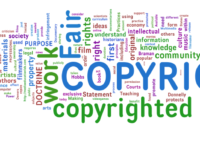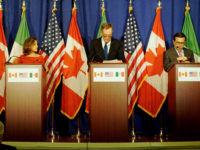The Canadian government kicked off its review of the Copyright Act this afternoon with a motion to ask the Standing Committee on Industry, Science and Technology to conduct a study on the issue. The formal launch had been expected for months since the 2012 reforms included a mandatory review of the law every five years. Lobby groups have been steadily gearing up for the review, with some hoping to undo some of the balancing provisions of the last reform process or demanding new restrictions. Indeed, restrictions on fair dealing, takedown rules, website blocking, and copyright term extension will undoubtedly figure prominently in the lobby playbook. Yet for millions of Canadians, the copyright review offers an opportunity to ensure that the law meets the needs of education, innovation, consumer rights, and creators with more flexibility in the form of fair use and restoring neutrality on Canada’s restrictive digital lock rules.

Fair Dealing by Giulia Forsythe (CC BY-NC-SA 2.0) https://flic.kr/p/dRkXwP
Copyright
Canadian Trade Committee Warns Against Unbalanced U.S. IP Demands in NAFTA
The House of Commons Standing Committee on International Trade released its detailed study on the priorities of Canadian stakeholders in NAFTA earlier today. I appeared before the committee to discuss intellectual property and digital trade issues in September. The report includes notable recommendations on culture (retain the cultural exemption in NAFTA) and digital rights (ensure that digital trade provisions do not undermine Canadians’ privacy rights or security of their data, a nod to concerns over data localization and data transfer rules). It also features an important discussion on the intellectual property chapter, with clear support for retaining a made-in-Canada approach consistent with international standards.
Digital Cancon, the Sequel: CRTC Broadcast Consult Sparks Demands for Everything from Internet and iPod Taxes to Website Blocking to Abandoning Net Neutrality
Canadians could be forgiven for thinking that the policies associated Cancon in a digital world largely wrapped up with the release of the government’s policy in September. Canadian Heritage Minister Melanie Joly spent months crisscrossing the country, meeting with hundreds of stakeholders, and ultimately delivering a high profile policy that featured the much-debated Netflix commitment alongside various plans to support the sector. While Joly also promised reviews of the Broadcasting Act, Telecommunications Act, and Copyright Act, she puzzlingly re-opened the very issue she had just decided by issuing an Order-in-Council to the CRTC to examine (yet again) policies associated with broadcasting.
Bell Leads on Radical Proposal for CRTC-Backed Mandatory Website Blocking System
Canadaland reports today that Bell is leading a coalition that plans to file a proposal with the CRTC that would lead to the creation a mandatory website blocking system in Canada. The unprecedented proposal, which includes the creation of a new “Internet Piracy Review Agency”, envisions the creation of mandatory block lists without judicial review to be enforced by the CRTC. As a result, the companies (reportedly including Rogers and Cineplex) envision sweeping new Internet regulations with the CRTC ultimately charged with enforcing site blocking by every Internet provider in Canada. I reviewed the proposal in order to provide comments to the Canadaland.
NAFTA and the Digital Environment: My CIGI Global Forum Lecture
Last week I delivered the CIGI Global Forum lecture in Ottawa on NAFTA and the Digital Environment. The lecture draws on some of my work for CIGI (NAFTA, Innovation) and makes the case that NAFTA negotiations are a problematic place for digital copyright reform, noting the lack of transparency, lost flexibility, and inability to strike a critical policy balance. Given that the issues are seemingly unavoidable in NAFTA, the lecture then highlights the preferred approach (relying on international treaty standards) and identifies many of the most important issues up for discussion including copyright term, fair dealing, intermediary liability and digital issues such as net neutrality and data localization. A video of the talk is embedded below.

![By The White House from Washington, DC (Foreign Leader Visits) [Public domain], via Wikimedia Commons https://upload.wikimedia.org/wikipedia/commons/9/9f/Donald_Trump_Justin_Trudeau_2017-02-13_05.jpg](https://www.michaelgeist.ca/wp-content/uploads/2017/12/trumptrudeaufeb2017-200x150.jpg)

![▇▇▇▇ [1113] by Brian J. Matis (CC BY-NC-SA 2.0) https://flic.kr/p/bfa2dF](https://www.michaelgeist.ca/wp-content/uploads/2017/11/6723758731_f8a9f8c7ab_b-200x150.jpg)







